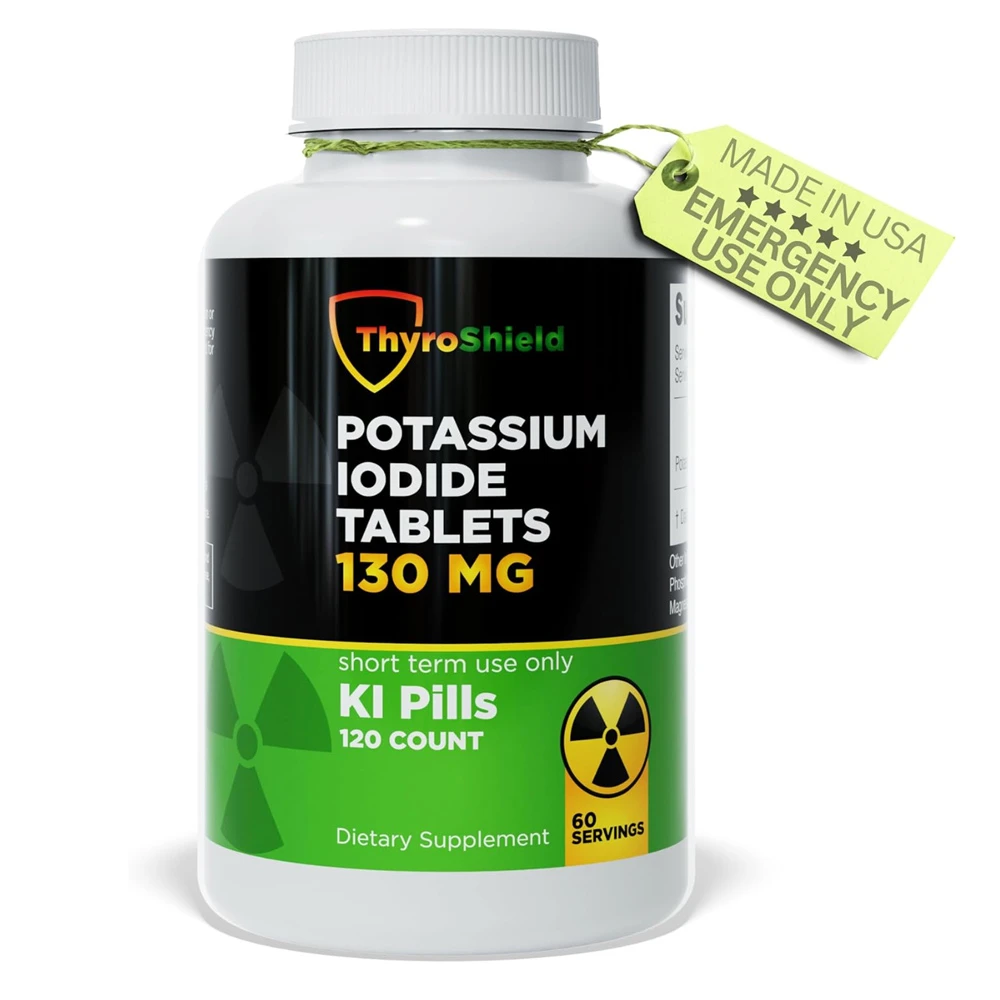In an era marked by rapid technological advancements and geopolitical tensions, the possibility of a nuclear or radiological emergency is a topic that, while unsettling, cannot be ignored. As responsible individuals, it’s crucial to understand the risks and the measures we can take to protect ourselves and our loved ones.

One such protective measure is the use of potassium iodide tablets. But what are they, and how do they work?
Understanding the Threat
We live in unpredictable times. A nuclear accident or explosion can release various radioactive elements into the atmosphere, one of which is radioactive iodine. This particular isotope poses a significant risk to our health, primarily because of its interaction with the thyroid gland.
The Thyroid Gland and Radioactive Iodine
The thyroid gland, located in the neck, plays a vital role in our body’s metabolism, growth, and development. It has a natural affinity for iodine, an essential element it uses to produce thyroid hormones. In the event of a nuclear incident, the thyroid can absorb the released radioactive iodine, leading to thyroid cancer or other related diseases.
The Protective Role of Potassium Iodide Tablets
This is where potassium iodide (KI) tablets come into play. When taken as directed, these tablets saturate the thyroid with non-radioactive iodine. By doing so, they effectively block the thyroid’s ability to absorb any radioactive iodine from the environment. It’s a simple yet effective mechanism: a saturated thyroid has no room to absorb the harmful radioactive variant.
Recommendation:
ThyroShield Potassium Iodide Tablets
Among the various brands available, ThyroShield Potassium Iodide Tablets stand out for their quality and efficacy. Think of them as a self-managed insurance policy for your health. In the face of a nuclear emergency, having a product like ThyroShield on hand can make a significant difference.


sandy
Friday 5th of January 2024
Is this a one and done pill or do you continue to take a daily dose
Rob Benson
Saturday 6th of January 2024
Do not take any longer than 2 weeks. The CDC recommends 130mg for adults, 65mg for children, 32.5mg for small children. Each tablet contains 65mg and so 2 would be for an adult and 1 would be for a child. Then broken in half for small children. One serving per day.
Ron Nichol
Wednesday 3rd of January 2024
How often do you have to turn over your supply of potassium iodide tabs? I.E. do they have an expiry date? Thanks
Rob Benson
Saturday 6th of January 2024
From the manufacturer: The bottle states 3 years for QA purposes. However, The NRC has stated that the shelf life of Potassium Iodide Tablets can be extended greater than 10 years due to the inherent stability of iodine salt mineral supplements.
sean
Wednesday 20th of December 2023
what if we have hypothyroidism? is it safe to use?
Rob Benson
Friday 22nd of December 2023
Potassium iodide is primarily used to protect the thyroid gland from radioactive iodine by saturating it with non-radioactive iodine. In individuals with hypothyroidism, the thyroid gland's function is already compromised, and introducing high doses of iodine (as found in potassium iodide tablets) can further affect thyroid function.
jada sarfate
Tuesday 31st of October 2023
How do we dose children?
Elena
Saturday 30th of December 2023
@Rob Benson, can people that are allergic to shellfish use this?
Rob Benson
Tuesday 31st of October 2023
The CDC recommends 130mg for adults, 65mg for children, 32.5mg for small children. Also: the product you purchase should have instructions on use by age.